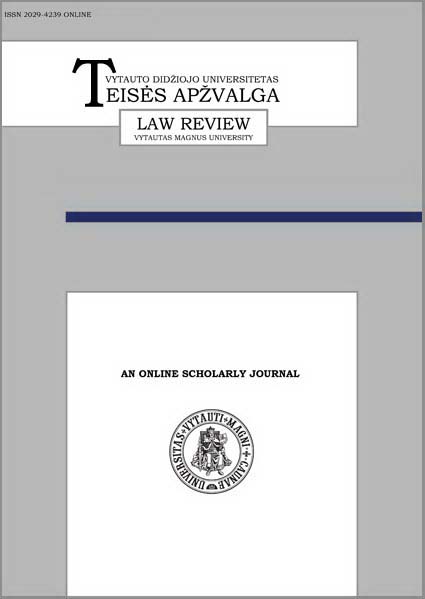Ar autonominių ginklų naudojimas mirtinai jėgai yra teisėtas?
Whether the Use of Autonomous Weapons for Deadly Force is Lawful?
Author(s): Justas SapetkaSubject(s): International Law, Human Rights and Humanitarian Law
Published by: Vytauto Didžiojo Universitetas
Keywords: Autonomous weapons; International humanitarian law; Deadly force; Meaningful human control;
Summary/Abstract: In order to gain military advantage, the armed forces of states are exploring autonomous weapons that, by their technical capabilities (response speed, accuracy and military power), exceed the physical capabilities of the people. The lawful use of these weapons in armed conflicts must comply with the principles of international humanitarian law. Against this background, the article seeks to answer the question of whether the use of autonomous weapons for deadly force is lawful. First of all, article defines the concept of autonomous weapons. Identifying the problems faced by scientists in defining autonomous weapons for which there is still no internationally recognized definition. The following is the advantages of autonomous weapons in comparison with people in armed conflicts are summarized and the problems of these weapons are mentioned. Secondly, article explains the concept of deadly force and discusses the concept of meaningful human control over autonomous weapons. The aspects of the application of international humanitarian law and the basic principles governing the lawful use of deadly force during an armed conflict are discussed below. Finally, the problematic aspects of the use of autonomous weapons for deadly force are identified. Thereafter a research methodology is developed and the legitimacy study on the use of autonomous weapons for armed conflict is conducted. The method of qualitative content analysis was chosen for the study. This approach analyzes the strategies of three states with the highest military power in the world the United States, Russia, China), in terms of the use of autonomous weapons for deadly force, in order to clarify their views on the legitimacy of the use of these weapons. These strategies were evaluated against three criteria: 1) whether the use of autonomous weapons for deadly force in armed conflict violates international humanitarian law principles; 2) states positions on the ban on lethal autonomous weapons; 3) whether human control is required using autonomous weapons for deadly force. Based on the research, the United States and Russia have indicated that the use of autonomous weapons for deadly force will not violate the principles of international humanitarian law, as it is a human duty to ensure that these principles are respected before using the weapon. Meanwhile, China noted that autonomous weapons will not be able to comply with distinction and proportionality principles and the use of these weapons for deadly force will violate international humanitarian law. The United States and Russia did not agree to ban lethal autonomous weapons systems. Whereas China supports a ban on the use of autonomous weapons but not on development or production. The study revealed that states are united in agreeing to maintain a particular human control over lethal autonomous weapon systems. Performed qualitative content analysis showed that the use of autonomous weapons for deadly force is lawful.
Journal: Teisės apžvalga
- Issue Year: 2019
- Issue No: 2 (20)
- Page Range: 105-132
- Page Count: 28
- Language: Lithuanian

